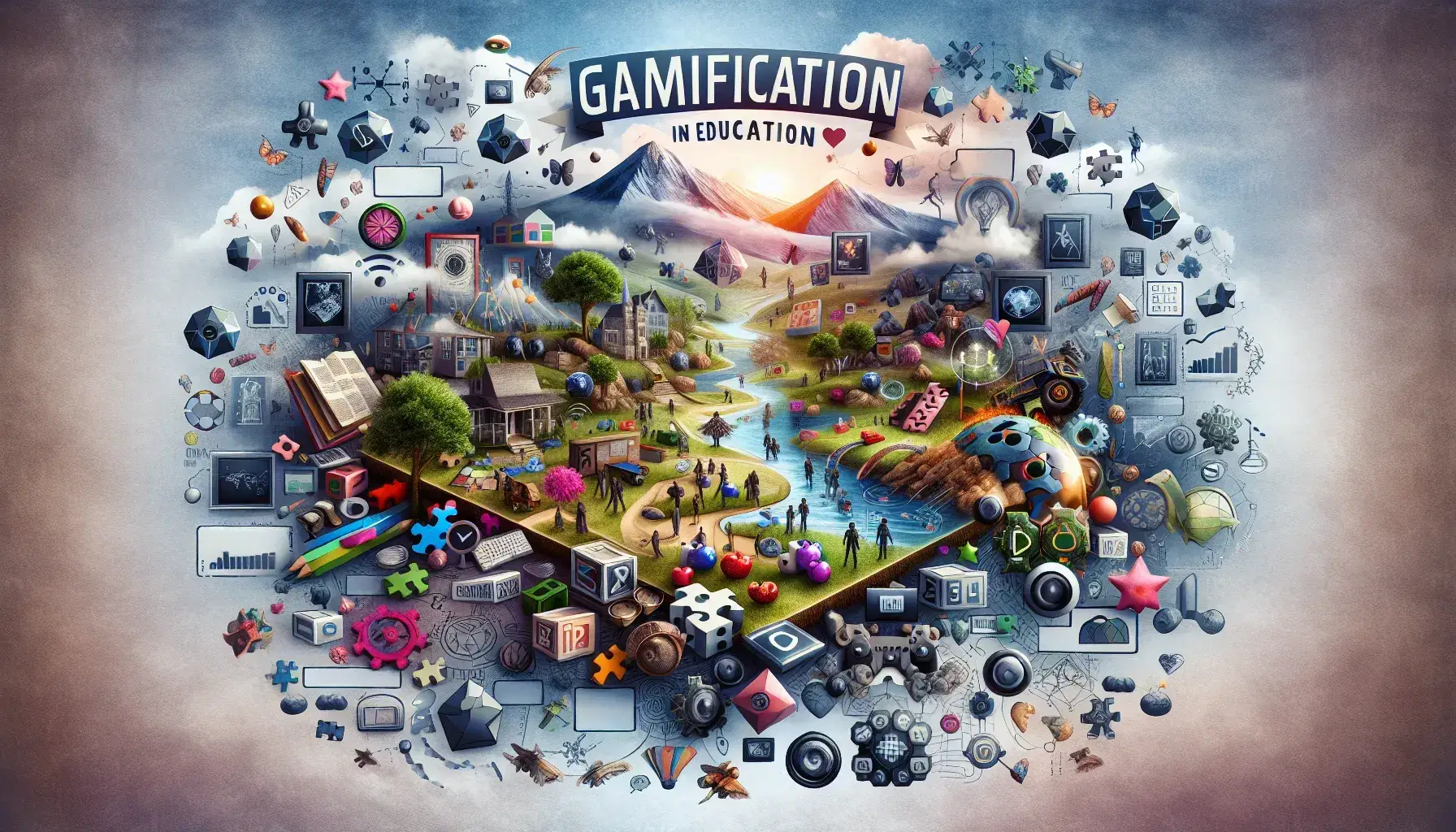Gamified Growth: How Video Games are Becoming Educational Tools for Children

The digital age is transforming every aspect of our lives, not least the way we learn and teach. Modern parents, many of whom have grown up with technology at their fingertips, are embracing video games as a potent source for educational development. At the EvaRealm Blog, we've observed an emerging trend where gaming is no longer just a pastime for children but instead a vehicle for learning. Let's delve into how video games are evolving into educational tools and what that means for the future of motherhood, parenting, and family life.
Gamified Growth in Education: An Overview
Reading and writing are foundational skills critical to a child's academic success. Now, imagine learning these skills through the immersive world of video games. Contemporary educational games are integrating story-rich quests and dialogue-heavy interactions that compel players to read, comprehend, and respond. This form of interactive gameplay capitalizes on narrative engagement to boost literacy in a way traditional methods may not. At the EvaRealm Blog, we believe these types of games hold the key to unlocking language skills in children, making literacy learning an exciting adventure rather than a tedious task.
Leveling Up Literacy: Unlocking Language Skills
The widespread aversion to mathematics among students has long been a concern. However, video games could be the answer to this persistent problem. With designs that integrate mathematical puzzles into their core gameplay, children find themselves solving equations and tackling geometry without the stress of time-bound and high-stakes environments typical of classrooms. These math-centric video games transform abstract concepts into visual, interactive challenges that can lead to improved comprehension and mastery of numerical skills.
Related Article: Ethical Considerations in Co-Parenting Apps: Striking a Balance Between Convenience and Privacy Rights
Math Mastery Mission: Enhancing Numerical Understanding
Science is all about curiosity and experimentation. What better way to inculcate a scientific temperament in kids than through gripping adventure games packed with experiments, hypothesis testing, and observation? EvaRealm Blog recognizes how virtual labs within these games allow children to explore the realms of biology, physics, and chemistry in a risk-free environment where exploding virtual chemicals result in laughter instead of safety hazards.
History textbooks can be dull reads for children who are more intrigued by stories they can interact with. Game developers have tapped into this by creating role-playing games (RPGs) where players dive into different historical eras as characters from those times. These RPGs function like interactive history lessons, engaging kids by allowing them to live through significant events rather than merely reading about them. Furthermore, these types of games often lead to enhanced cultural understanding and critical thinking skills.
Scientific Quests: Fostering a Scientific Temperament
Emotional intelligence is as vital as academics in a child's holistic development. Simulation games enable children to step into someone else’s shoes, face moral dilemmas, make difficult choices, and see the repercussions of their actions play out virtually. This virtual experience can nurture empathy and social awareness. On the EvaRealm Blog, we recognize the profound role these experiences can potentially play in raising emotionally aware individuals.
Related Article: From Analog Roots to Digital Pathways: Rethinking Generational Approaches in Family Building
Historical Heroes: Engaging with the Past Through Gaming
In today's tech-centric world, coding is as essential as reading and writing. Video games that incorporate programming puzzles not only teach children logical thinking but also give them an early start in understanding coding fundamentals—an invaluable skill set for future job markets. As players progress through levels and increasingly complex challenges, they build on their programming knowledge organically and practically on platforms dedicated to nurturing budding coders.
Emotional Intelligence Entertainment: Nurturing Empathy
With screen time becoming an integral part of children's routine, finding ways for this time to foster family bonding is essential. Co-op or multiplayer games designed for parent-child collaboration present an unparalleled opportunity for quality time while also fostering teamwork and strategy building skills.
Turning chores into a game is a classic parenting strategy—now imagine combining it with actual video game rewards systems. Some innovative game-based platforms have begun incentivizing day-to-day responsibilities with in-game achievements or rewards, bridging the gap between virtual feats and real-world behavior. This intersection can promote responsibility in young players while maintaining engagement.
Related Article: Virtual Reality (VR) Parenting Simulators: Empowering Realistic Decision-Making and Skill Building
Programming Puzzles: Developing Coding Skills Playfully
The line between educational enrichment and gaming addiction can be thin. Encouraging structured playtime schedules, integrating parental controls on gaming platforms, and actively participating in their children’s gaming experiences are ways parents can ensure that educational gaming remains beneficial without leading to overindulgence.
Quality Time Quests: Collaborative Gaming for Families
The dawn of educational gaming unfolds before us—heralded her on EvaRealm Blog—offering vivid new horizons for learning in motherhood, parenting, and family life. In this landscape where controller meets classroom discipline, only those parents who embrace the interactivity promise of gamified growth will succeed in equipping their children with skills essential for thriving among future adulthood quests.
Frequently Asked Questions
Video games are enhancing children's literacy skills by integrating story-rich quests and dialogue-heavy interactions. This immersive gameplay encourages players to read, comprehend, and respond, transforming literacy learning into an engaging adventure rather than a mundane task.
Video games nurture emotional intelligence by allowing children to step into different characters' shoes, face moral dilemmas, and experience the consequences of their choices. These simulations help foster empathy and social awareness, contributing to holistic development.
Yes, video games can significantly improve children's understanding of math concepts. By incorporating mathematical puzzles into gameplay, these games turn abstract ideas into interactive challenges, helping children solve equations and grasp geometry without the pressure of traditional classroom settings.
Check Out These Related Articles

Digital Parenting Tools: Technology-Community Collaborative Platforms

User-Centric Technologies: Innovating Convenience in Modern Motherhood

Generation Z's Impact on Modern Parenthood: Insights into a Tech-Savvy Youth Culture Reshaping Family Dynamics

